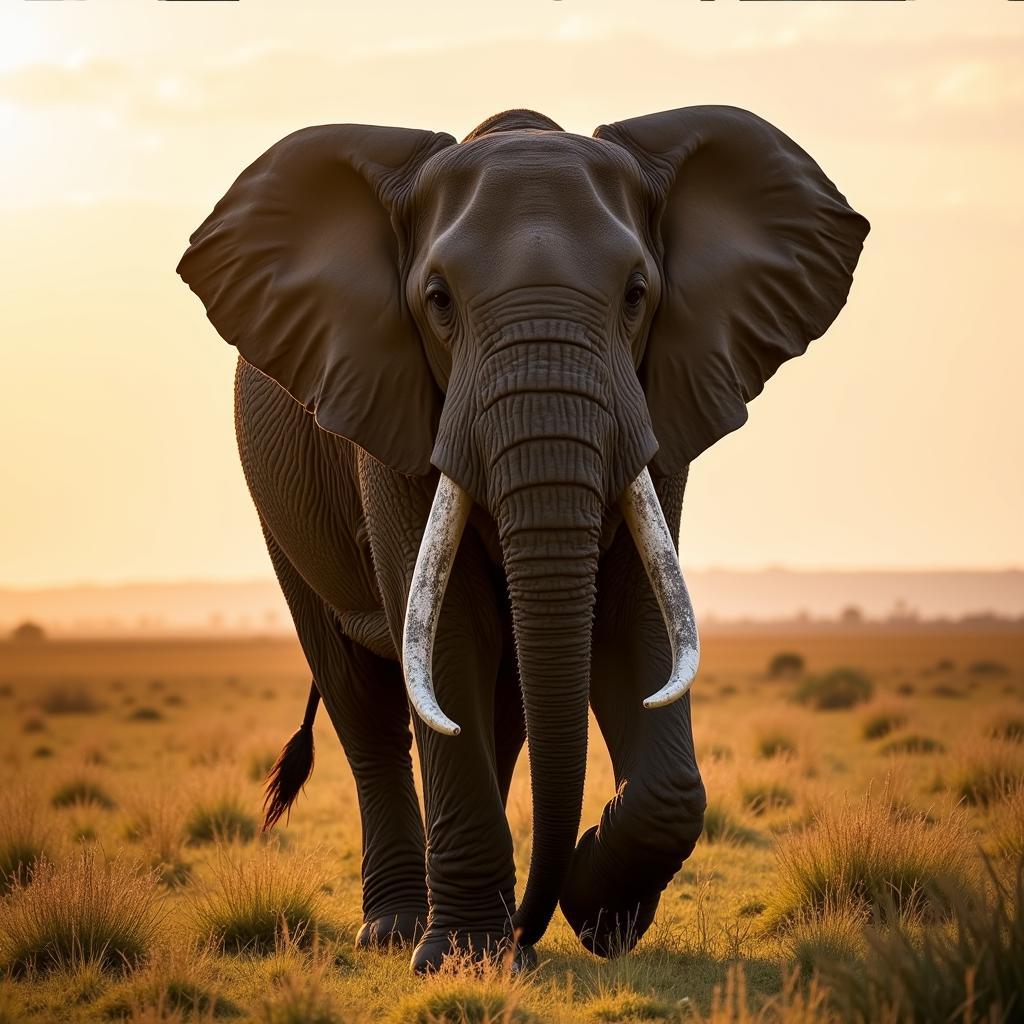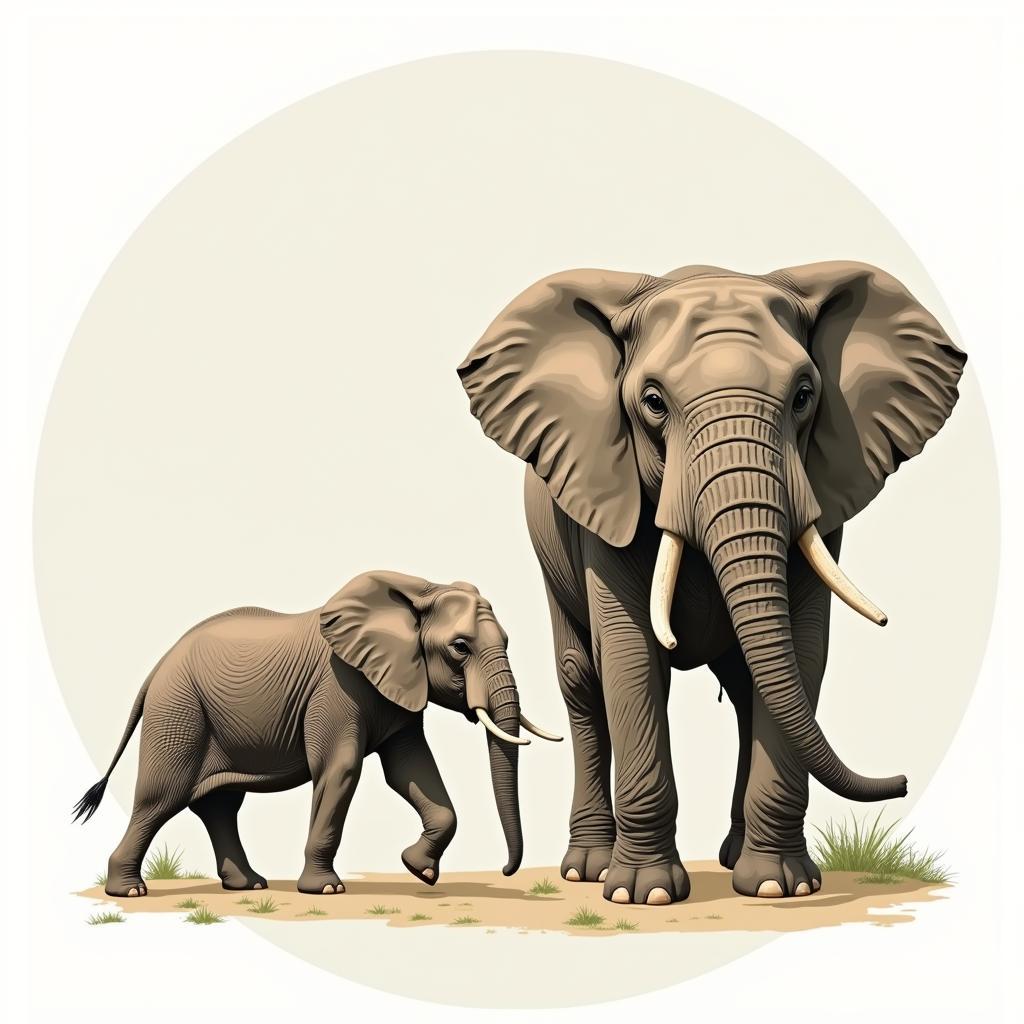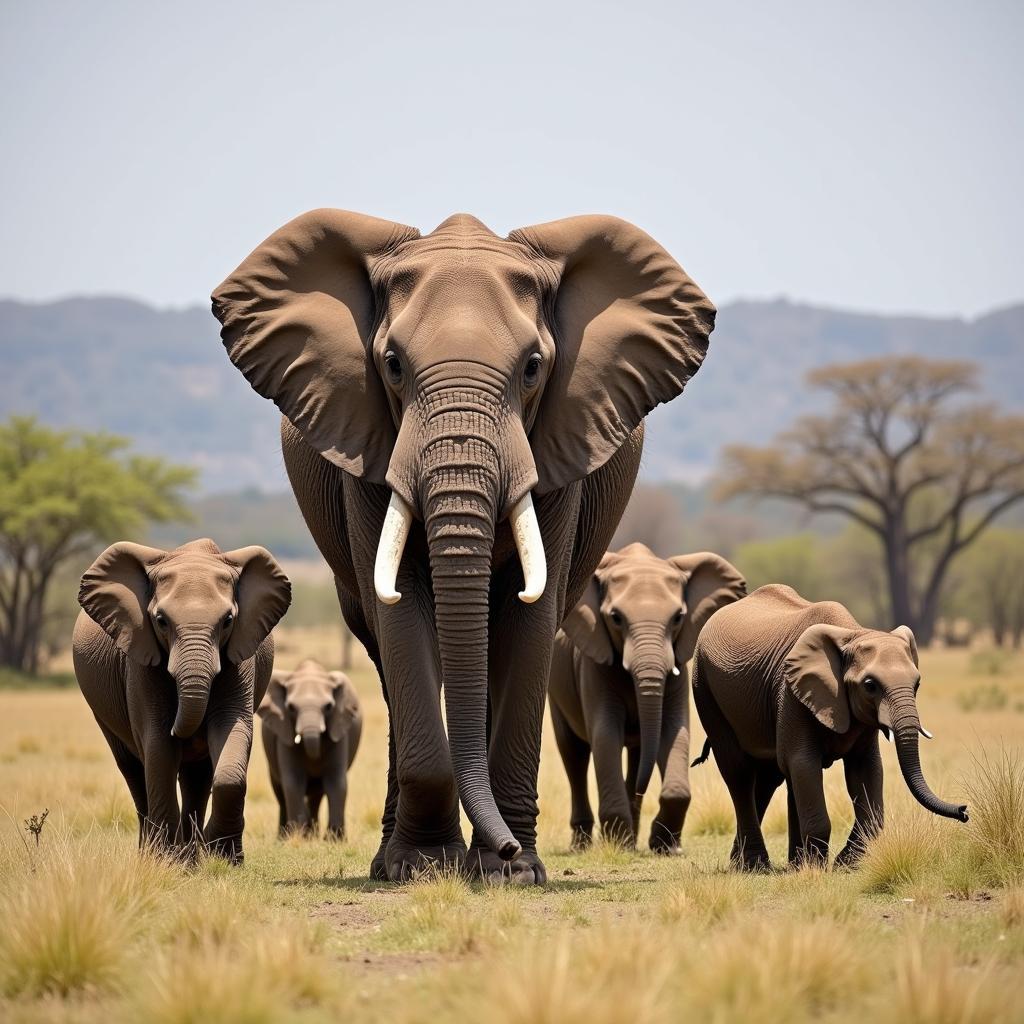African Bull Elephant Height: Understanding the Giants
The African Bull Elephant Height is a subject that inspires awe and wonder. These majestic creatures, the largest land animals on Earth, command attention with their sheer size and presence. But just how tall do these giants of the savanna grow?
Factors Influencing African Bull Elephant Height
While genetics play a significant role in determining an elephant’s eventual size, several other factors contribute to their impressive stature:
- Species: Africa is home to two distinct elephant species: the African bush elephant (Loxodonta africana) and the African forest elephant (Loxodonta cyclotis). Bush elephants are generally larger than their forest-dwelling counterparts.
- Nutrition: A rich and abundant food supply is crucial for elephants to achieve their full growth potential. Elephants in areas with diverse vegetation and ample rainfall tend to be larger.
- Environmental Conditions: Favorable environmental conditions, including sufficient rainfall and suitable temperatures, contribute to overall health and growth.
- Social Structure: Elephants live in complex social structures led by matriarchs. The presence of older, experienced females can influence the growth and development of younger elephants.
 African Bull Elephant on the Savannah
African Bull Elephant on the Savannah
Average Height of African Bull Elephants
On average, adult African bull elephants stand between 10 to 13 feet (3 to 4 meters) tall at the shoulder. To put that into perspective, that’s about twice the height of an average doorway!
African Bush Elephant Height vs. African Forest Elephant Height
- African bush elephants are the larger of the two species, with males typically reaching heights of 10 to 13 feet (3 to 4 meters).
- African forest elephants, on the other hand, are slightly smaller, with males averaging around 8 to 10 feet (2.4 to 3 meters) in height.
 African Bull Elephant Height Comparison
African Bull Elephant Height Comparison
The Importance of Height for Bull Elephants
Height is a significant advantage for bull elephants in various aspects of their lives:
- Dominance: In the competitive world of elephant society, height is a key factor in establishing dominance. Larger bulls are more likely to win confrontations, securing access to mates and resources.
- Feeding Advantage: Their height allows them to reach higher into trees for foliage, giving them access to food sources that smaller elephants can’t reach.
- Defense: A bull elephant’s imposing size serves as a deterrent to predators. Their height, combined with their massive tusks and powerful bodies, makes them a formidable opponent.
Conservation Concerns
Sadly, these magnificent creatures face numerous threats, including habitat loss, poaching, and human-wildlife conflict. Protecting these giants and ensuring their survival requires concerted conservation efforts.
“The sheer scale of an African bull elephant is truly humbling,” remarks Dr. Amani Nkosi, a wildlife biologist specializing in African elephants. “Their height is not just a physical attribute but a testament to their evolutionary success and a crucial factor in their survival.”
African Bull Elephant Height FAQs
Q: How tall is the tallest African bull elephant ever recorded?
A: The tallest African elephant ever recorded was a bull shot in Angola in 1955. It stood an astounding 13.4 feet (4.1 meters) tall at the shoulder.
 African Bull Elephant Family Group
African Bull Elephant Family Group
Q: How does the height of an African bull elephant compare to an Asian elephant?
A: African bull elephants are generally taller than Asian elephants. The largest Asian bull elephants can reach heights of about 9 to 10 feet (2.7 to 3 meters).
Q: At what age do African bull elephants reach their full height?
A: African bull elephants continue to grow throughout their lives, but they typically reach their full height between the ages of 25 and 35.
Exploring the World of African Elephants
For further insights into the fascinating lives of African elephants, delve into these related topics:
Understanding the height of an African bull elephant provides a glimpse into the grandeur of these remarkable animals. Their size, a symbol of their strength and resilience, underscores the importance of preserving these gentle giants for generations to come.
For any inquiries or assistance regarding African wildlife and conservation efforts, please contact us at:
Phone Number: +255768904061
Email: kaka.mag@gmail.com
Address: Mbarali DC Mawindi, Kangaga, Tanzania.
Our dedicated team is available 24/7 to assist you.

